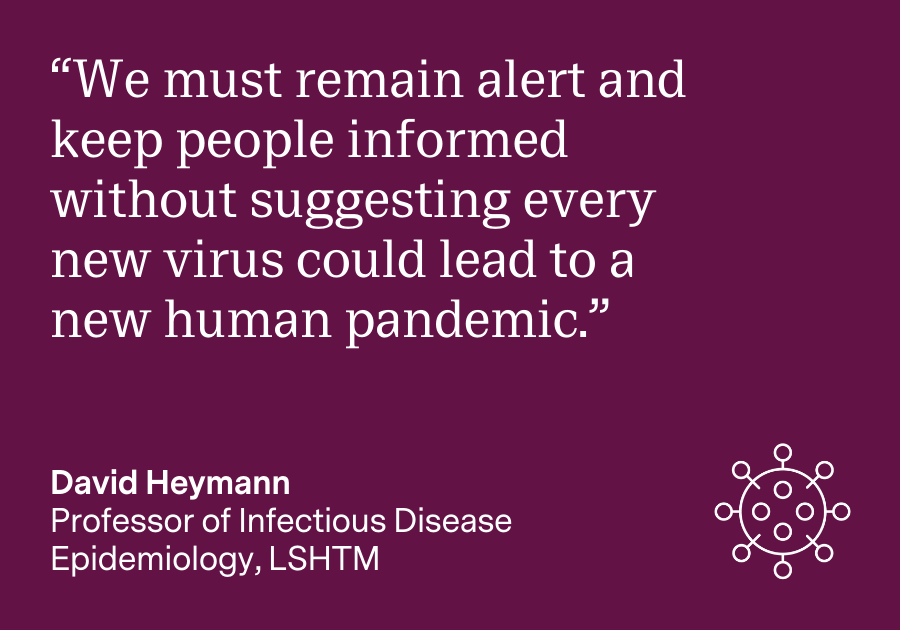Expert comment – new bat coronavirus discovery
24 February 2025 London School of Hygiene & Tropical Medicine London School of Hygiene & Tropical Medicine https://lshtm.ac.uk/themes/custom/lshtm/images/lshtm-logo-black.png
“We must remain alert and keep people informed without suggesting every new virus could lead to a new human pandemic.” David Heymann, Professor of Infectious Disease Epidemiology, LSHTM
A team of Chinese researchers has identified a new bat coronavirus, HKU5-CoV-2, that uses the same cell-surface protein to gain entry into human cells as the SARS-CoV-2 virus that causes COVID-19.
The researchers behind the study, published in the journal Cell, said that while the discovery raises the possibility that HKU5-CoV-2 could one day infect humans it does not enter human cells as readily as SARS-CoV-2 does.
The study has led to media reports raising concerns that if HKU5-CoV-2 crosses over into humans it could cause another COVID-19-style pandemic. However, HKU5-CoV-2 is just one of numerous viruses circulating in animals that could pose a threat to human health.
Professor David Heymann of the London School of Hygiene & Tropical Medicine (LSHTM) said:
“Newly-identified viruses in animals, such as HKU5-CoV-2, are a reminder that we must remain alert and keep people informed about potential disease threats without suggesting every new virus could lead to a new human pandemic.
“It is not possible to predict when and where any new virus or mutation of an existing virus will appear, or how harmful it could be to humans, so it’s very important to have strong detection and surveillance systems in place. For example, in the UK this includes surveillance of influenza-like illnesses routinely done by GP practices.
“Linking these ‘early warning’ systems to genetic sequencing and laboratory diagnosis is the best way for governments to be prepared to respond rapidly to any respiratory epidemic, and ensure people are given the best advice about protecting themselves against respiratory infections.
“It is also essential that we have secure laboratories with strong and well-controlled bio security measures in place and education about the risks from live animal markets and pet shops that sell exotic pets.”
If you enjoyed this article and would like to build a career in global health, we offer a range of MSc programmes covering health and data, infectious and tropical diseases, population health, and public health and policy.
Available on campus or online, including flexible study that works around your work and home life, be part of a global community at the UK's no.1 public health university.